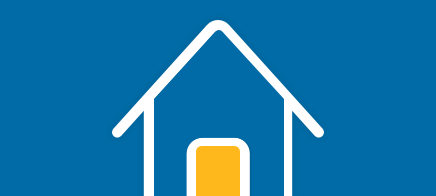Closing costs are generally an unavoidable expense when you sign a mortgage. But how should you pay them?
Buying a home is an expensive prospect. You have to come up with a down payment, budget for movers, and procure furniture for your new abode. But there's another expense many homebuyers forget to account for: closing costs on a mortgage.
Closing costs aren't universal; each mortgage lender sets its own fees that are then passed on to borrowers when they finalize their home loans. Typically, closing costs range from 2% to 5% of a borrower's loan amount. On a national level, they average $5,749.
The good news is that you generally don't need to come up with a check for your closing costs when you sign your mortgage. You could go that route, but you'll often get the option to roll those fees into your mortgage and pay them off along with the rest of your loan. This applies to both new home purchases and refinances. The question is: Which is the better choice?
Should you pay closing costs up front?
The upside of writing out a check for your closing costs when you finalize your mortgage is that you won't have to take on more debt when you buy a home. If you roll your closing costs into your loan, you'll pay interest on them. Pay them up front, and you won't.

Can you secure a mortgage rate below 3%? Check rates instantly to see
9 in 10 Americans can qualify to refinance their mortgage. With mortgage rates plummeting to multi-decade lows, there's no better time to cut your monthly mortgage payment.
On the other hand, perhaps money is tight and you're already spending a lot of your savings on a down payment. In which case, you may be better off rolling your closing costs into your loan. Also, if you've managed to secure a low interest rate on your mortgage, it may not hurt to just lob an extra few thousand dollars into your home loan.
How to lower your closing costs
The less you have to spend on closing costs, the smaller the check you'll have to write out, or the less you'll add to your mortgage balance. That's why it's wise to keep your closing costs to a minimum. You can do so in a number of ways:
- Shop around for different offers. You may find that one lender offers lower closing costs than another.
- Negotiate with the lender you choose. Your lender may be willing to lower certain fees (say, its application fee) in order to gain your business.
- See if your seller will pay some or all of your costs. In a normal housing market, it's not uncommon for sellers to be asked to pick up some or all of a buyer's closing costs. Sellers are often willing to do so if they want to solidify the offer they've received. But this strategy may not work right now because it's a seller's market.
What's the right call for you?
No matter how much you end up spending on closing costs, think about the best way to pay those fees. If you can afford the extra money at closing, you may decide to just fork it over and be done with it. But if you'd rather conserve your savings, rolling your closing costs into your mortgage may be a better choice. This especially holds true if you're buying a home that will need a lot of work. You might need that money in the near term to get it into better shape.
"pay" - Google News
October 25, 2020 at 05:00PM
https://ift.tt/3mlMyF8
Should You Roll Your Closing Costs Into Your Mortgage or Pay Them Up Front? - Motley Fool
"pay" - Google News
https://ift.tt/301s6zB
Bagikan Berita Ini














0 Response to "Should You Roll Your Closing Costs Into Your Mortgage or Pay Them Up Front? - Motley Fool"
Post a Comment